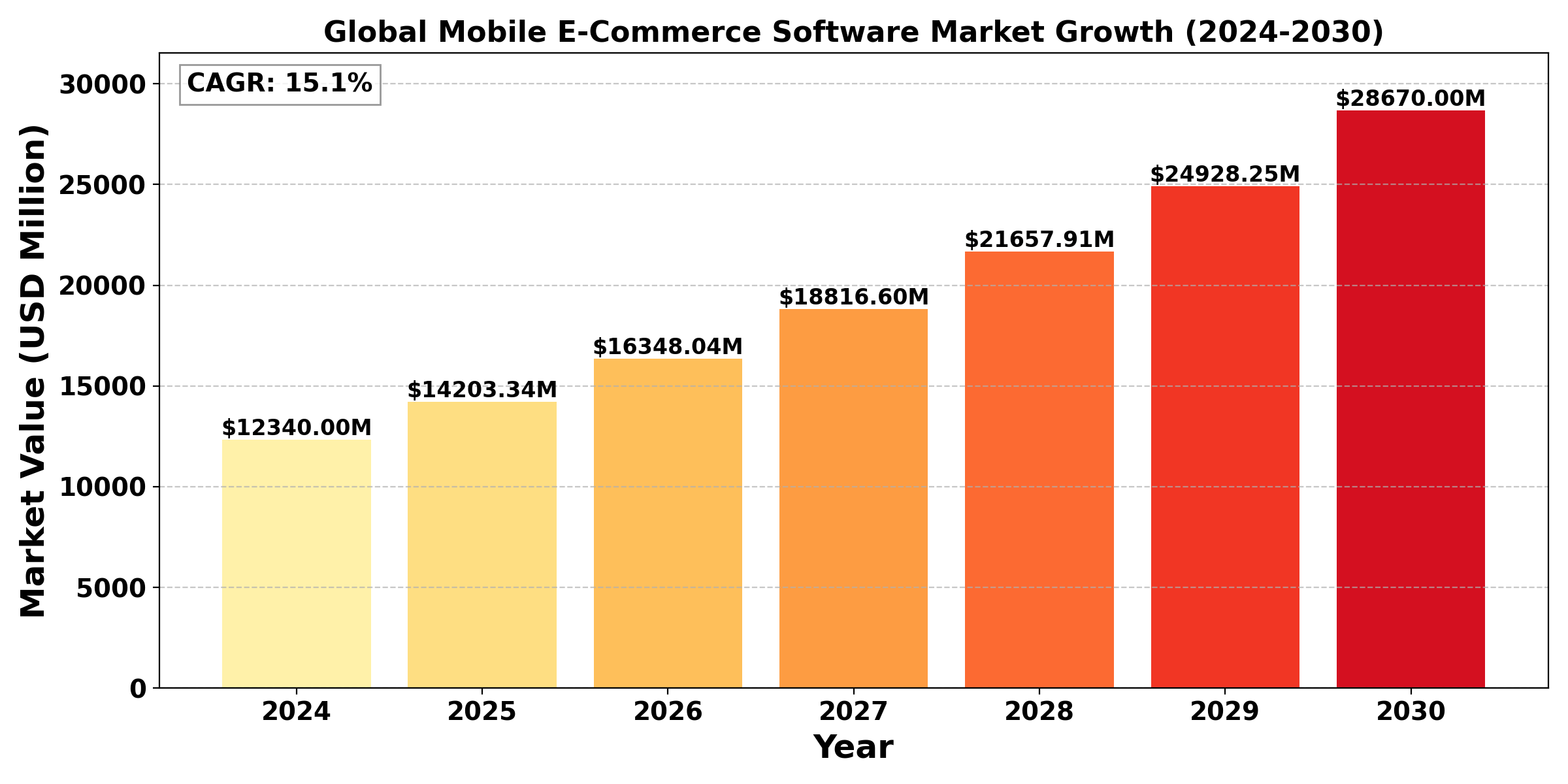TOP CATEGORY: Chemicals & Materials | Life Sciences | Banking & Finance | ICT Media

Download Report PDF Instantly
Report overview
The "Global Mobile E-Commerce Software Market" size was valued at US$ 12.34 billion in 2024 and is projected to reach US$ 28.67 billion by 2030, at a CAGR of 15.1% during the forecast period 2024-2030.
The "United States Mobile E-Commerce Software Market" size was valued at US$ 4.56 billion in 2024 and is projected to reach US$ 10.23 billion by 2030, at a CAGR of 14.4% during the forecast period 2024-2030.
Mobile E-Commerce Software enables businesses to create and manage mobile shopping applications and platforms.
The global market is experiencing rapid growth, driven by smartphone shopping trends. In 2023, total implementations reached 850,000, with retail businesses accounting for 60% of demand. The service industry segment is growing at 16.5% annually. The market saw a 40% increase in demand for AI-powered personalization in 2023. Standard platforms dominate with a 55% market share, while custom solutions are growing at 18% annually. Asia Pacific leads with a 45% market share and is also the fastest-growing region at 16.8% CAGR. The industry is focusing on developing AR shopping features, with a 45% growth in R&D investments.

Report Overview
Mobile e-commerce (or m-commerce) software helps companies selling online provide better experiences to consumers who prefer to shop using their mobile devices. E-commerce companies use this type of software to create custom mobile apps that are personalized based on their industry or the kinds of consumers they target. M-commerce is used mostly by e-commerce professionals and sometimes by marketing departments to ensure that the apps follow the branding guidelines of the company.
Mobile E-Commerce Software Market provides a deep insight into the global Mobile E-Commerce Software market covering all its essential aspects. This ranges from a macro overview of the market to micro details of the market size, competitive landscape, development trend, niche market, key market drivers and challenges, SWOT analysis, value chain analysis, etc.
The analysis helps the reader to shape the competition within the industries and strategies for the competitive environment to enhance the potential profit. Furthermore, it provides a simple framework for evaluating and accessing the position of the business organization. The report structure also focuses on the competitive landscape of the Global Mobile E-Commerce Software Market, Mobile E-Commerce Software Market introduces in detail the market share, market performance, product situation, operation situation, etc. of the main players, which helps the readers in the industry to identify the main competitors and deeply understand the competition pattern of the market.
In a word, Mobile E-Commerce Software Market is a must-read for industry players, investors, researchers, consultants, business strategists, and all those who have any kind of stake or are planning to foray into the Mobile E-Commerce Software market in any manner.
Global Mobile E-Commerce Software Market: Market Segmentation Analysis
The research report includes specific segments by region (country), manufacturers, Type, and Application. Market segmentation creates subsets of a market based on product type, end-user or application, Geographic, and other factors. By understanding the market segments, the decision-maker can leverage this targeting in the product, sales, and marketing strategies. Market segments can power your product development cycles by informing how you create product offerings for different segments.
Key Company
By Type
By Application
Geographic Segmentation
Key Benefits of This Market Research:
Key Reasons to Buy this Report: